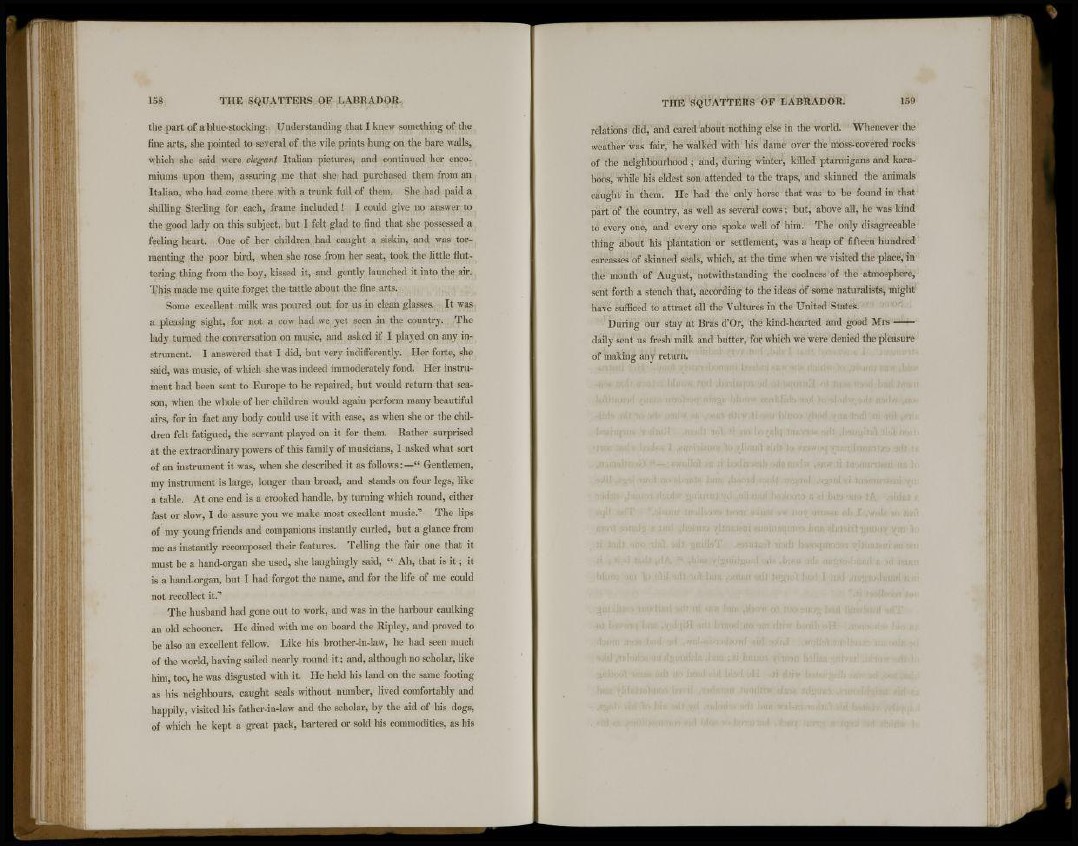
the part of a blue-stocking. Understanding that I knew something of the
fine arts, she pointed to several of the vile prints hung on the bare walls,
which she said were elegant Italian pictures, and continued her encomiums
upon them, assuring me that she had purchased them from an
Italian, who had come there with a trunk full of them. She had paid a
shilling Sterling for each, frame included ! I could give no answer to
the good lady on this subject, but I felt glad to find that she possessed a
feeling heart. One of her children had caught a siskin, and was tormenting
the poor bird, when she rose from her seat, took the little fluttering
thing from the boy, kissed it, and gently launched it into the air.
This made me quite forget the tattle about the fine arts.
Some excellent milk was poured out for us in clean glasses. It was
a pleasing sight, for not a cow had we yet seen in the country. The
lady turned the conversation on music, and asked if I played on any instrument.
I answered that I did, but very indifferently. Her forte, she
said, was music, of which she was indeed immoderately fond. Her instrument
had been sent to Europe to be repaired, but would return that season,
when the whole of her children would again perform many beautiful
airs, for in fact any body could use it with ease, as when she or the children
felt fatigued, the servant played on it for them. Rather surprised
at the extraordinary powers of this family of musicians, I asked what sort
of an instrument it was, when she described it as follows:—" Gentlemen,
my instrument is large, longer than broad, and stands on four legs, like
a table. At one end is a crooked handle, by turning which round, either
fast or slow, I do assure you we make most excellent music." The lips
of my young friends and companions instantly curled, but a glance from
me as instantly recomposed their features. Telling the fair one that it
must be a hand-organ she used, she laughingly said, " Ah, that is i t ; it
is a hand-organ, but I had forgot the name, and for the life of me could
not recollect it.11
The husband had gone out to work, and was in the harbour caulking
an old schooner. He dined with me on board the Ripley, and proved to
be also an excellent fellow. Like his brother-in-law, he had seen much
of the world, having sailed nearly round it; and, although no scholar, like
him, too, he was disgusted with it. He held his land on the same footing
as his neighbours, caught seals without number, lived comfortably and
happily, visited his father-in-law and the scholar, by the aid of his dogs,
of which he kept a great pack, bartered or sold his commodities, as his
relations did, and cared about nothing else in the world. Whenever the
weather was fair, he walked with his dame over the moss-covered rocks
of the neighbourhood ; and, during winter, killed ptarmigans and karaboos,
while his eldest son attended to the traps, and skinned the animals
caught in them. He had the only horse that was to be found in that
part of the country, as well as several cows; but, above all, he was kind
to every one, and every one spoke well of him. The only disagreeable
thing about his plantation or settlement, was a heap of fifteen hundred
carcasses of skinned seals, which, at the time when we visited the place, in
the month of August, notwithstanding the coolness of the atmosphere,
sent forth a stench that, according to the ideas of some naturalists, might
have sufficed to attract all the Vultures in the United States.
During our stay at Bras d'Or, the kind-hearted and good Mrs
daily sent us fresh milk and butter, for which we were denied the pleasure
of making any return.